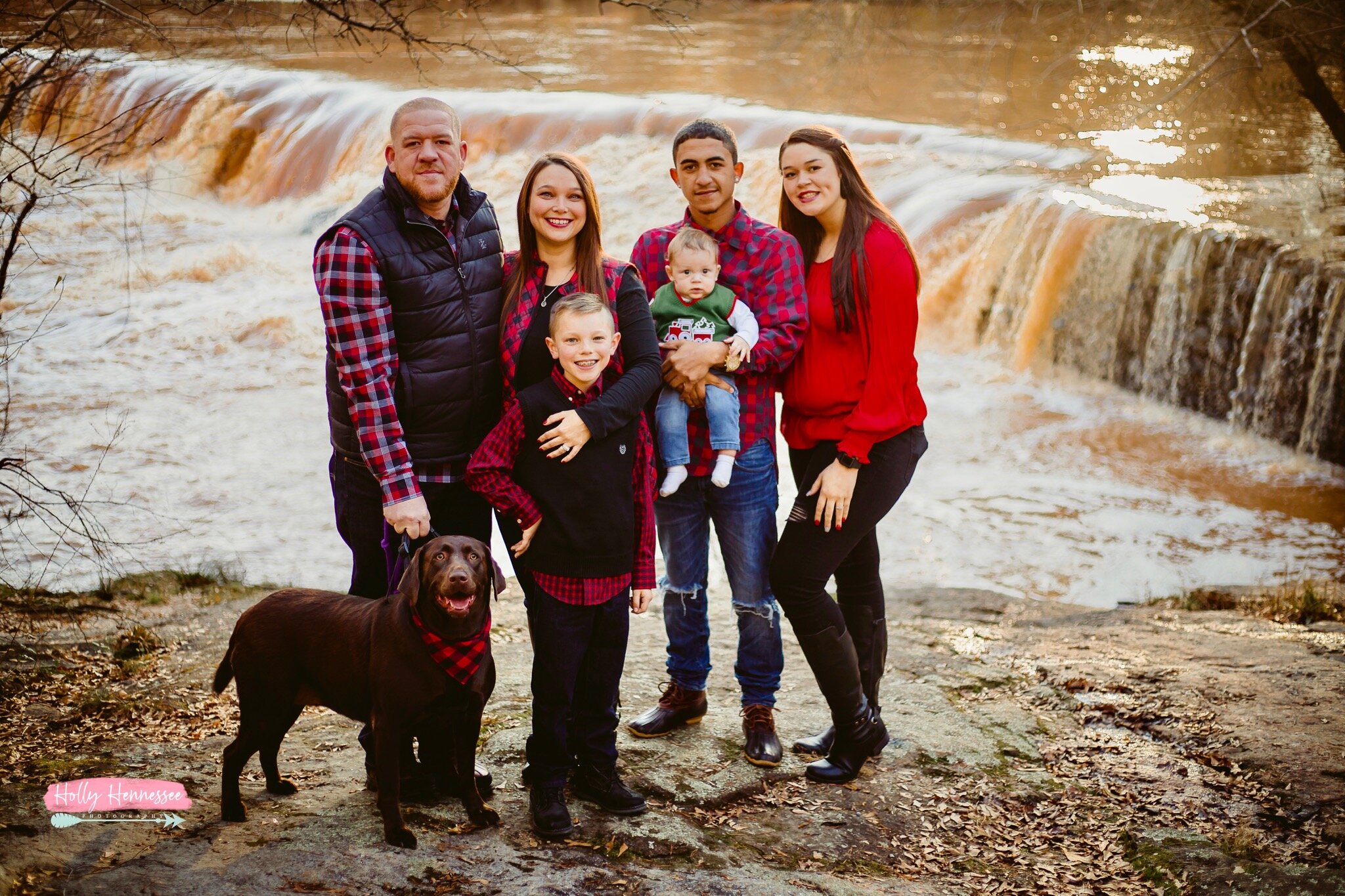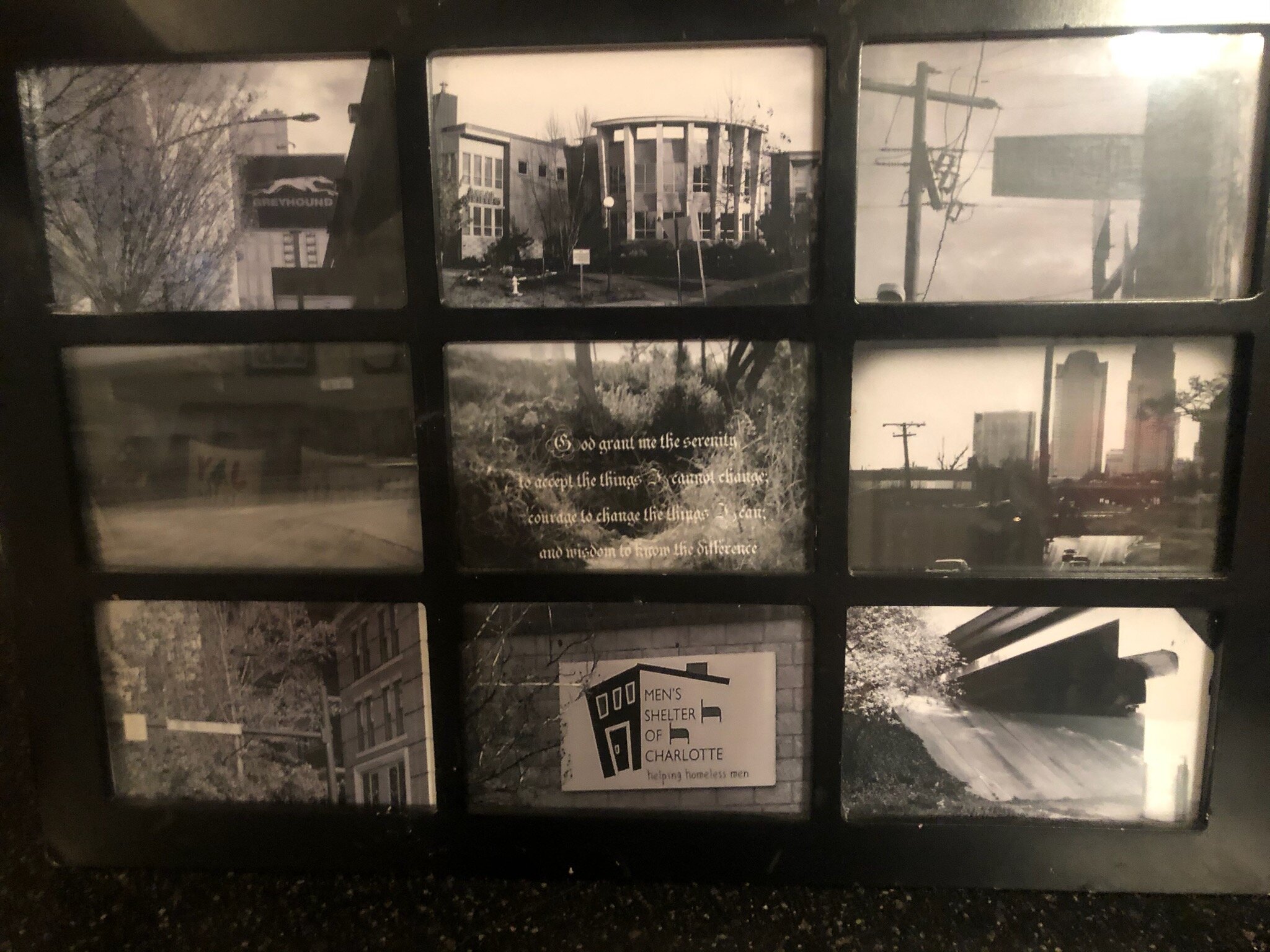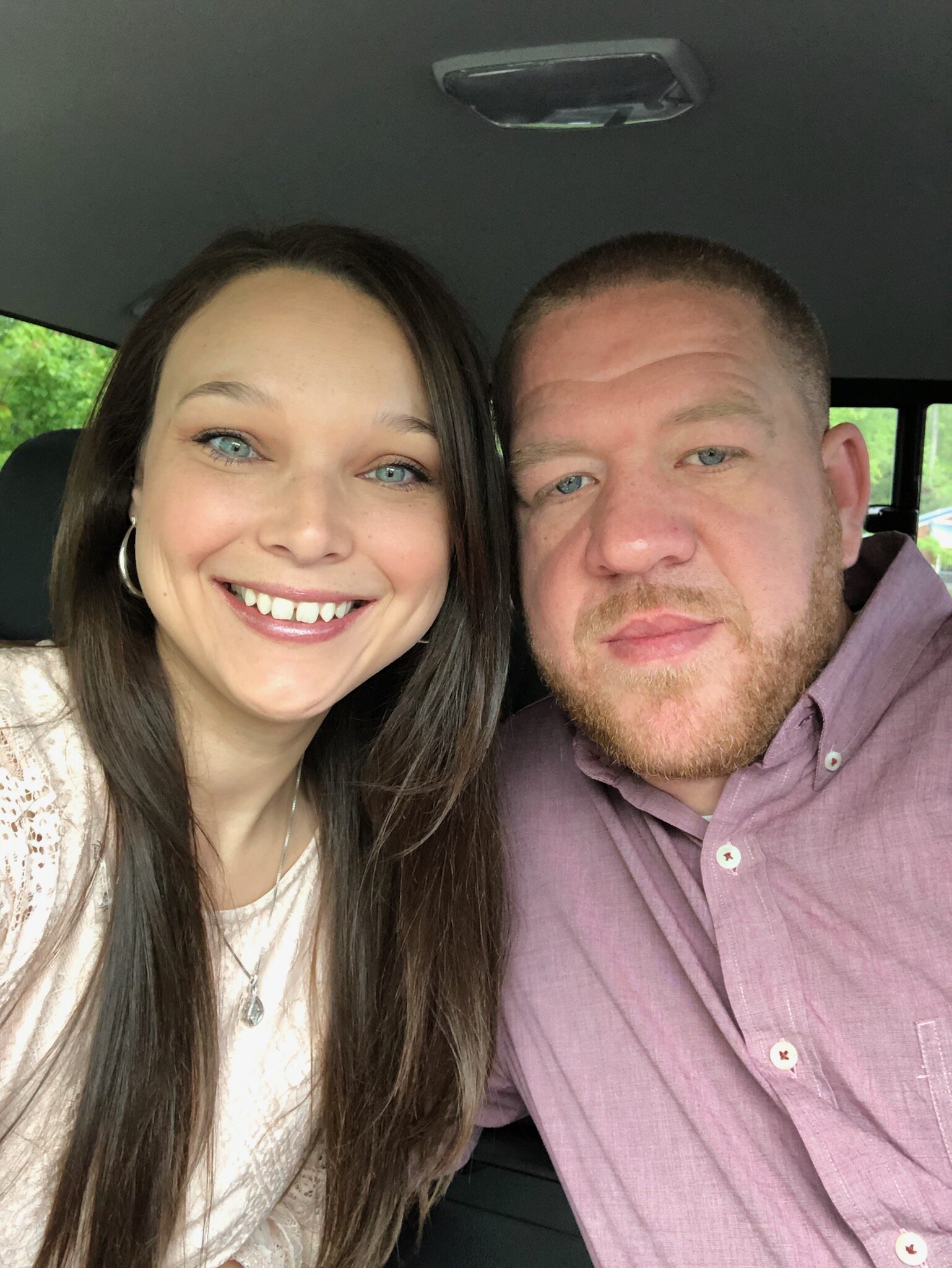A Miracle Story for the Holidays
In a year where the daily news reminds us of all that is frightening and perilous in our world, it is especially comforting to stumble across a story that is quite frankly, miraculous.
It began for me unexpectedly this week with an email from Dr. Alyson Kuroski-Mazzei, CEO of HopeWay, introducing me to Chris Locklear who had asked her to connect us. The reason he wanted to talk is precisely why his story is so amazing so I will leave that part for the end.
Due to our Covid social distance world, Chris and I met over Zoom. He was on the back porch of his home in Belmont and I was in my den in Charlotte. Chris looked to be a big guy with muscled shoulders, close-cropped hair, and a strong jawline. Before I could make any assumptions, Chris let me know, “I am probably going to get emotional telling you all this. It is nothing short of a miracle.”
Chris began at the beginning where he grew up in Pembroke part of the Lumbee tribe in what he described as a middle-class family. As a boy, he was bright, curious and part of the NASA science club with a dream to be an engineer. Chris was also athletic and a three-sport star in basketball, football, and baseball. His parents took him to church often and Chris says, “We had morals at an early age.”
His father was ex-military, so he was “hard on” his son but Chris understood it was out of love. The first crack in Chris’ strong foundation began after his parents divorced when he was in fourth grade. Not knowing how to cope, Chris struggled quietly, and it wasn’t until high school where his life began to derail through drugs and alcohol. Chris remembers vividly the downward spiral that began in 10th grade. The substances helped numb his pain and soon nothing mattered.
His first intervention was at 19 and Chris was sent to a treatment center in Wilmington. Like a lot of programs, the release from treatment becomes the most precarious time. For Chris, it began a cycle of detox, treatment, and relapse that pushed him farther and farther down. He thought Charlotte might give him a fresh start and a chance at a different life. He smiles telling me, “I wanted the white picket fence.”
In 2002, he boarded a Greyhound bus that turned out to be a one-way ticket to more disappointment.
“I ended up homeless in Charlotte,” Chris tells me and the tears he promised me might appear began to well for the first time.
Between 2002 and 2004, Chris cycled between the Urban Ministry Center and the Men’s Shelter. He talks about the bridges he slept under, the dumpsters he foraged in, and the railroad tracks leading no way out. He had a bed in the shelter, but he remembers failing a breathalyzer test which forced him out. At the time, a bed required sobriety so Chris wandered the streets and huddled under the I-277 bridge for several days until he could be readmitted to the shelter. “I just felt hopeless,” Chris said.
The NA meetings at UMC were his first lifeline and Chris remembers attending the daily sessions with 20-30 other people. It was a counselor at the Men’s Shelter, Billy Godwin, who first tried to help Chris find hope. In the small world of fate, Billy’s son was one of Chris’s best friends growing up in Pembroke. Chris had no idea his friend’s dad was a counselor in Charlotte or that they would one day meet at the shelter. Billy, like Chris’ dad, was ex-military and he spoke hard truth to Chris, “I see potential in you, but you have to want it for yourself.”
That began a winning streak in Chris’ life. A job at Walmart. An apartment for $120 a month. A new start at CPPC enrolling in engineering classes. Chris felt his life was beginning again but he met a girl from Hickory, NC that started a series of wrong decisions. He describes a lot of co-dependency and losing his sobriety. He dropped out of school once again and became estranged from his family.
“They were exhausted,” Chris said. “They had turned me over to God and had decided whatever happened to me they were going to have to live it.”
Almost nine years passed, cycling in and out of treatment and homelessness. Chris remembers his lowest point in February 2009 when he was living on the streets of Maiden, NC. He was walking in a snowstorm with no jacket only the clothes on his back and he remembers wanting to die. Chris didn’t want to live like this anymore. He knew he was either going to die on the streets or end up in prison and he didn’t want either. Chris thought if he just didn’t wake up in the morning that would be fine. “I asked God once again, please, just don’t allow me to wake up.”
But Chris did wake up in a hospital where his life had been saved once again from alcohol poisoning and exposure on a frozen, snowy night. Chris remembers being in a rage as he discovered he didn’t die. “Looking back, it is funny how when I begged God to take me out of this world and he didn’t. He had a different plan.”
The plan was set in motion when Chris left the hospital for yet another detox. But this time was different because Chris was different. He began taking the steps seriously getting a sponsor and working the 12-steps. His sponsor spoke truth to him, “Accept your role in this. Your parents divorced when you were in 4th grade, but you are now 29. Let’s stop playing the blame game.”
Chris reconnected with his family and his dad offered more tough love, “Son, it’s time you start walking the walk not talking the talk.” And one last truth really got to Chris when his dad told him, “I have prayed for you to come home just not in a body bag.”
Chris realized, “I had spent ten years destroying other people’s lives and my own. Now, it is time to give back.”
That is what Chris has spent the last ten years doing. He went back to school several times to earn three levels of nursing certification: CNA, LPN, and RN. Along the way, he made the President’s list with over a 4.0 GPA and earned scholarships to pay for all his education. As president of his LPN Nursing Class, Chris gave the graduation speech and ended up marrying Michelle, an incoming nursing student, who was in the audience that day and moved by his impassioned words. Now at 41, Chris is surrounded by the family he is creating as both a father and a new grandfather.
When I ask him about all that success after years of struggle, Chris says, “I really didn’t want to let anyone down again, especially and maybe finally, myself.”
All of that is a miracle, but here is the really great part. After all that struggle and all that hopelessness, Chris finally landed his “dream job.” Chris is now the Assistant Director of Nursing at HopeWay. “I have been looking for this my whole life,” Chris said. “I can restore hope.”
Chris restores hope daily for clients at HopeWay but he wanted to talk with me about helping restore hope at Roof Above as well. Now that the Urban Ministry Center and the Men’s Shelter have merged, Chris wants to volunteer for the organization that helped save his life. He wants to help others experiencing homelessness know there is a way out. He wants to help men believe in themselves and something bigger.
Near the end of our conversation, Chris tells me about a special Christmas present his wife, Michelle, gave him. He had taken her to see all of his past—the bridge he slept under, the dumpsters, the Urban Ministry Center, the Greyhound bus station. Without telling him, Michelle went back and took black and white photos of it all and framed them for Chris. The photo collection hangs in their home a reminder of how far he has come. Chris describes it as his daily reflection. “I never want to forget I made it out.”
He thinks about all the times he asked God to take his life and about the Garth Brooks country and western song, Unanswered Prayers. “I am so glad God didn’t answer my prayers to die,” Chris says. “He had a better plan.”



